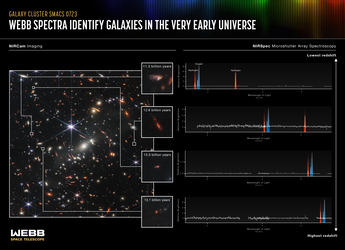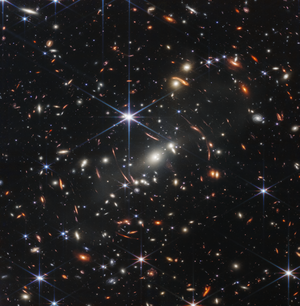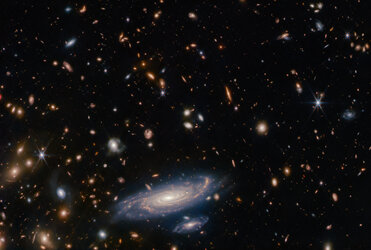Accept all cookies Accept only essential cookies See our Cookie Notice

About ESA
The European Space Agency (ESA) is Europe’s gateway to space. Its mission is to shape the development of Europe’s space capability and ensure that investment in space continues to deliver benefits to the citizens of Europe and the world.
Highlights
ESA - United space in Europe
This is ESA ESA facts Member States & Cooperating States Funding Director General Top management For Member State Delegations European vision European Space Policy ESA & EU Space Councils Responsibility & Sustainability Annual Report Calendar of meetings Corporate newsEstablishments & sites
ESA Headquarters ESA ESTEC ESA ESOC ESA ESRIN ESA EAC ESA ESAC Europe's Spaceport ESA ESEC ESA ECSAT Brussels Office Washington OfficeWorking with ESA
Business with ESA ESA Commercialisation Gateway Law at ESA Careers Cyber resilience at ESA IT at ESA Newsroom Partnerships Merchandising Licence Education Open Space Innovation Platform Integrity and Reporting Administrative Tribunal Health and SafetyMore about ESA
History ESA Historical Archives Exhibitions Publications Art & Culture ESA Merchandise Kids Diversity ESA Brand Centre ESA ChampionsLatest
Space in Member States
Find out more about space activities in our 23 Member States, and understand how ESA works together with their national agencies, institutions and organisations.
Science & Exploration
Exploring our Solar System and unlocking the secrets of the Universe
Go to topicAstronauts
Missions
Juice Euclid Webb Solar Orbiter BepiColombo Gaia ExoMars Cheops Exoplanet missions More missionsActivities
International Space Station Orion service module Gateway Concordia Caves & Pangaea BenefitsLatest
Space Safety
Protecting life and infrastructure on Earth and in orbit
Go to topicAsteroids
Asteroids and Planetary Defence Asteroid danger explained Flyeye telescope: asteroid detection Hera mission: asteroid deflection Near-Earth Object Coordination CentreSpace junk
About space debris Space debris by the numbers Space Environment Report In space refuelling, refurbishing and removingSafety from space
Clean Space ecodesign Zero Debris Technologies Space for Earth Supporting Sustainable DevelopmentApplications
Using space to benefit citizens and meet future challenges on Earth
Go to topicObserving the Earth
Observing the Earth Future EO Copernicus Meteorology Space for our climate Satellite missionsCommercialisation
ESA Commercialisation Gateway Open Space Innovation Platform Business Incubation ESA Space SolutionsLatest
Enabling & Support
Making space accessible and developing the technologies for the future
Go to topicBuilding missions
Space Engineering and Technology Test centre Laboratories Concurrent Design Facility Preparing for the future Shaping the Future Discovery and Preparation Advanced Concepts TeamSpace transportation
Space Transportation Ariane Vega Space Rider Future space transportation Boost! Europe's Spaceport Launches from Europe's Spaceport from 2012Latest

Webb spectra confirm two arcs are the same galaxy
Thank you for liking
You have already liked this page, you can only like it once!
Want to go on a galactic treasure hunt? Data known as spectra from the NASA/ESA/CSA Webb Telescope make it easy to find – and match up – cosmic prizes!
At far left is a near-infrared image of galaxy cluster SMACS 0723. A group of massive galaxies below and to the right of the bright central star have distorted, magnified, and mirrored many galaxies in this field.
By quickly examining the image at left by eye, it becomes clearer that one arc may be made up of two similar looking galaxies. Their bright central regions match, despite their stretched appearances. These may be lensed galaxies – one galaxy that is mirrored in a second location. Are they the same? Researchers can’t be sure from the image alone – more data are needed to confirm a match.
Scientists do this by gathering spectra, which spread light out so they can fully examine an object’s makeup. Webb’s Near-Infrared Imager and Slitless Spectrograph (NIRISS), which gathers spectra of every object in any field it observes, was pointed at the galaxy cluster to gather more detail. A segment of the NIRISS grism image (an instrument that has a grating, or stair steps, on a prism), at centre, shows how ionized oxygen and atomic hydrogen emission lines are distributed along the arc.
Next, the spectra from each of these two galaxies were plotted as graphs, shown at right, to reveal their compositions. The graphs, known as spectra, match, which indicates that these arcs are mirror images of the same galaxy. Webb’s spectra from NIRISS also quickly proved that light from both galaxies was emitted 9.3 billion years ago, further confirming they are one and the same.
Using Webb’s NIRISS is like opening a treasure chest overflowing with spectra. For example, this instrument can disperse the spectra along the image vertically and horizontally. Researchers can use both modes to untangle which lines match each source.
Every object’s image can be transformed into spectra like the two shown above. So even if researchers aren’t intending to study a particular galaxy in the field, they may make a surprise discovery.
NIRISS was contributed by the Canadian Space Agency (CSA). The instrument was designed and built by Honeywell in collaboration with the Université de Montréal and the National Research Council Canada.
-
CREDIT
NASA, ESA, CSA, and STScI -
LICENCE
ESA Standard Licence

Webb spectra identify galaxies in the very early Universe

Sample shapes of distant galaxies identified in Webb…

Webb MIRI spectroscopy animation

Webb’s first deep field















 Germany
Germany
 Austria
Austria
 Belgium
Belgium
 Denmark
Denmark
 Spain
Spain
 Estonia
Estonia
 Finland
Finland
 France
France
 Greece
Greece
 Hungary
Hungary
 Ireland
Ireland
 Italy
Italy
 Luxembourg
Luxembourg
 Norway
Norway
 The Netherlands
The Netherlands
 Poland
Poland
 Portugal
Portugal
 Czechia
Czechia
 Romania
Romania
 United Kingdom
United Kingdom
 Slovenia
Slovenia
 Sweden
Sweden
 Switzerland
Switzerland


























